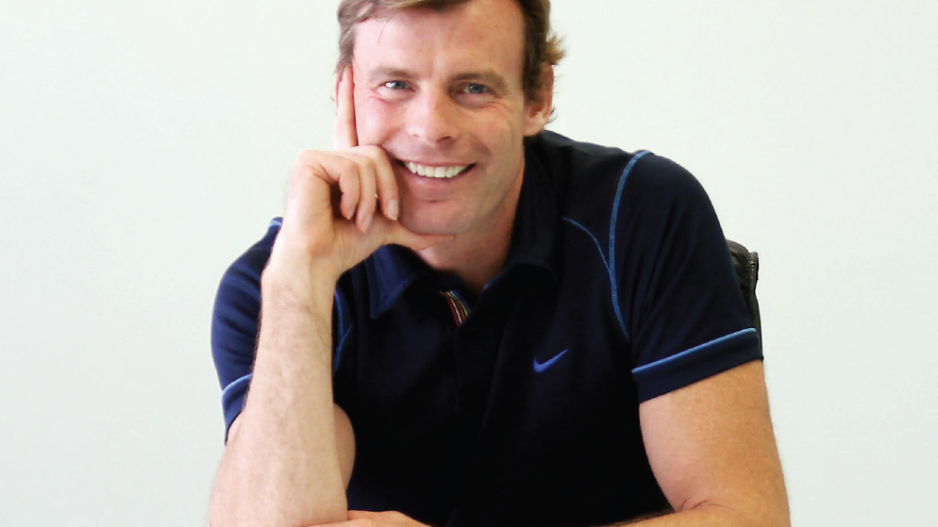From high-tech companies started during his undergraduate studies to the continent-wide health services provider Nurse Next Door, serial entrepreneur John DeHart has been developing and building businesses his whole life.
“I have to do something that changes the world,” DeHart said. “It could be a little way, it could be a big way, but I have to do something that changes the world.”
Like Nurse Next Door’s pink promotional cars, DeHart’s entrepreneurial track record is a standout in the sector. After serving for 13 years as the CEO of Nurse Next Door, which focuses on at-home care, DeHart joined his second health care venture, Live Well Exercise Clinic, in 2014. Live Well is a fitness clinic that specializes in clinically supervised exercise to help fight chronic diseases.
DeHart views entrepreneurial success as the result of equal parts purpose and business sense.
“Why you do what you do is just as important as making money,” he said.
This is a lesson DeHart learned early in his career while still at university. After growing up in the Okanagan, he went to Cornell University in New York to study finance and play hockey. Dehart started his first company with a small group of people as a third-year student at Cornell in the mid-1990s. He would go on to help start five different high-tech companies. After DeHart left the tech sector, some of these companies were merged into or acquired by larger companies and others were wiped out by the dot-com collapse at the turn of the century.
DeHart’s time in the technology sector gave him insight into the importance of learning quickly and adapting a business to changing markets and times. Yet while he enjoyed some entrepreneurial success in technology, he felt the industry didn’t allow him to fully stick to his principles, something he considers essential to being a successful entrepreneur.
The “purpose” half of DeHart’s formula for success involves aligning business values with personal values. DeHart says it’s essential to define the change you and your business want to make in the world, no matter how big or small.
“Purpose trumps profits every time,” DeHart said. “Here’s what I know, and I know because I do it that way, profits will always come. If I derive something with purpose and with heart and soul, I know profits will come at some point, and that’s the beauty of building a purpose-driven company.”
DeHart said that in his own experience with Nurse Next Door, setting out to change the world meant doing something somewhat unique in the home care sector, by changing how customers interact with health service providers. Having a purpose can help entrepreneurs find the inspiration and motivation to overcome business struggles, he added.

Another means of developing a successful, purposeful business is to ensure the values of the business align with the entrepreneur’s personal values.
For DeHart those values include making a priority of helping people, he said. Unlike with his previous tech ventures, DeHart was able to follow his passion in the health care sector and become engrossed in his work and business. Where his other businesses solely focused on quick profit, Nurse Next Door focused on initiating the change DeHart wanted to see in the world around him. This not only allowed the company to be profitable but also to become a unique brand, he said.
The third way DeHart ensures his business has purpose is by making it a “change agent” – a brand centred on challenging the status quo.
He said that by making the health care delivered under his new brand, Live Well, as “un-clinical” and patient-friendly as possible, he is able to offer something new in a crowded industry.
Though DeHart views purpose as the essential half of the business-success equation, it is ultimately ineffective if profitable business practices aren’t put in place. While a passionate purpose is essential to both establishing a brand and making profit, passion alone can’t make a business successful, he said.
DeHart added that his business models focus on scalability. By creating a franchise model, he was able to take his company from its Vancouver location to six provinces and 12 U.S. states.
Dehart also stressed the importance of understanding one’s customer base.
“You can’t cheat demographics,” he said. “Over the long term, they will get you every single time, either to the good or the bad.”
Seeking change is not only important when determining the purpose of a business, it is equally important when it comes to making a business profitable, he said.
“In today’s world, there is too much uniformity. I tell every entrepreneur I talk to the key in today’s world is to do something daring, something different. You can’t be ordinary or you’ll never make it.” •




